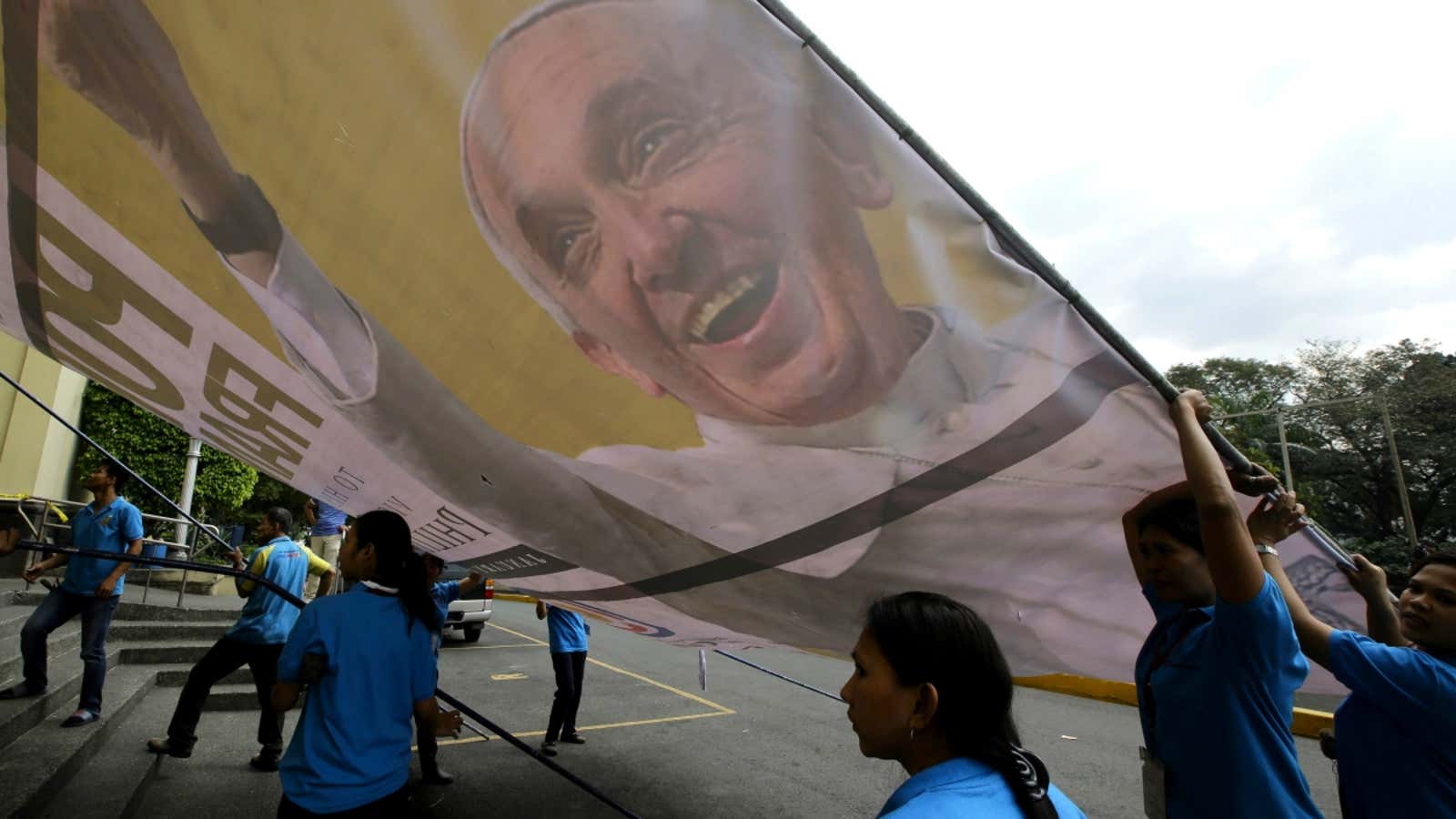Update Jan. 15, 12:25pm ET: This post has been updated with a statement from PepsiCo.
Within days of Pope Francis’s highly anticipated arrival in the Philippines on Jan. 15, branded billboards featuring the affable pontiff mysteriously appeared in a stretch of highway along his parade route in Manila.
This tweet was posted by a local radio station Sunday night and quickly spread via news reports and Facebook shares.
Translation: “They bear Pepsi’s name and Bgy Chair Felibes “FPJ” Papa, Jr. of Bgy 701 Zone 77. Is this Epal? Or SuperEpal?”
“Welcome to His Holiness,” the headline of the billboard reads. At first glance, Pepsi’s blue banners might appear to be simple tributes to the pope’s historic visit. That is, until you get to the name of a government official on the lower third of the sign: “Greetings from Barangay Chairman Felibus ‘FPJ’ Papa Jr.”
At first glance, the billboards appeared to be a team effort by Pepsi and this local politician to cozy up to the pope. We tried unsuccessfully to reach the politician by phone.
PepsiCo told Quartz in an emailed statement: ”PepsiCo’s local bottling partner in the Philippines put up a small number of billboards to commemorate the visit of the Pope. It is our company’s global policy to not place our brands on any religious or political materials, and in accordance with this policy, when we learned of the billboards we immediately requested our bottler to remove them.”
In Manila, this kind of thing happens during visits by powerful people. The banners, typically printed on tarpaulin, are called “epal.” Epal (from the Tagalog colloquialism “makapal” or “ma-papel,” which loosely translates as “shameless or brazen”) is a general term for the practice of improving one’s status by leeching onto an esteemed figure.
It can come in the form of grandiose public displays as in the case of the Pepsi-Papa welcome sign or manifest as outdoor signage commissioned by politicians to claim credit for public works projects. The practice has become so pervasive that two “anti-epal” bills in the Philippine senate and house of representatives seek to criminalize the “system of insidious advertising” by politicians.
Despite the Aquino government’s appeal against profiteering from the pope’s image, epals continue to appear around the metro area, faster than the government can take them down. “For those seeking the limelight, it would be better if you picked another occasion,” implored the presidential communications secretary Herminio Coloma Jr. during a press briefing convened a day after the Pepsi-branded epals emerged. “It would be best if the focus and center of attention be on the Holy Pope,” he added.
Translation: ”Epal posters for the Pope’s visit have become rampant. The [politician’s] picture appears larger than the Pope’s.”
The Vatican has weighed in, but not about Pepsi or the politician. Rather, the news service of the Council of the Catholic Bishops’ Conference of the Philippines reported that the Vatican requested that banners bearing Pope Francis’s image be replaced with “the images of Jesus, parishes’ patron saints or that of the Blessed Virgin Mary.”
